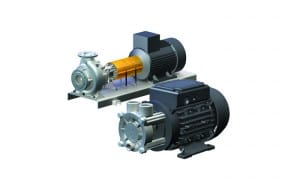 Whether for home, business or industrial use, pumps of all kinds are used throughout Australia and the world to transport fluids or run systems that involve this process. Different types of pumps, such as vacuum and gear water pumps, are useful in different ways for different projects.
Whether for home, business or industrial use, pumps of all kinds are used throughout Australia and the world to transport fluids or run systems that involve this process. Different types of pumps, such as vacuum and gear water pumps, are useful in different ways for different projects.
The most popular in a number of different industries is the centrifugal pump. As with any other kind of pumping equipment, there are several things to take into consideration when purchasing a centrifugal pump.
About the Pump
Each type of pump has various components that make them unique and separate them from the others. Centrifugal pumps operate on the premise of using kinetic energy to transport different kinds of fluids. An electric motor or engine drives a shaft with an impeller on it and rotates it inside the volute casing of the pump. The impeller has vanes which collect the water from the centre of the suction port and then directs the water outwards centrifugally. The product being pumped is directed to the discharge port of the volute by the shape of the volute, which is similar to the shape of a snail shell. At the point of discharge from the volute there is a cut water, which assists in preventing the product from simply circulating within the volute casing.
Uses for Centrifugal Pumps
From humble beginnings lifting mud in its first application of the centrifugal pump, which was invented in the modern model in 1851, this type of pump is used today in thousands of communities and industrial settings. These kinds of pumps are now commonly used to move water, sewage, oil or other industrial chemicals. Generally.
Individual Differences
All centrifugal pumps use the same operating principal, however there are some individual differences among makes and models that determine the effectiveness of the pump at certain tasks. For example, centrifugal water pumps may be designed a little bit different than those meant to move sewage, simply by changing impeller styles the application can be varied. However, there are also some overall differences that impact the quality of one pump to another.
General Look-over
The key then in determining what you want to look for in your centrifugal pump is to identify these amongst other factors and select the style of pump which will be suitable for your application. You should make sure that you know what kind of system you’re working with and ensure you match the pump style and design to your application.
Smooth Running
The first thing to check in a centrifugal pump is the correlation between pressure and flow in relation to the application, a pump which is correctly selected and matched with a particular application and duty will run smoother as well as extending its lifespan.
Operating a pump when there is little to no fluid in the pipes, not only wastes energy, but can and normally will cause serious damage the pump.
Add-ons to the pump can also help it perform better such as the correct pipe design. Eccentric reducers are fitted to the suction of the pump and when correctly installed reduce the risk of air locks, which is problematic.
Other components can include valves and gauges that would make the system easier to monitor and control.
Valves and Gauges
Pressure gauges are important to have on your pump because it makes it much easier to monitor the status of the pumps and the system, and enable you to establish if there are any problems in the system, as well as assist you to pinpoint any deterioration in the pumping system. A check, or foot valve is installed to prevent fluid from backing flowing. Suction and discharge valves are important so that the pump can be isolated from the system for maintenance or repairs.
Centrifugal Factors
Although there are many types of pumps out there, centrifugal pumps are the most common, and are used in the pumping of water, sewage, slurries and industrial chemicals.
The important thing to remember when getting or maintaining one of your own is to make sure that everything runs safely and smoothly. For more information about the pumps we offer, please call 1300 922 973.
